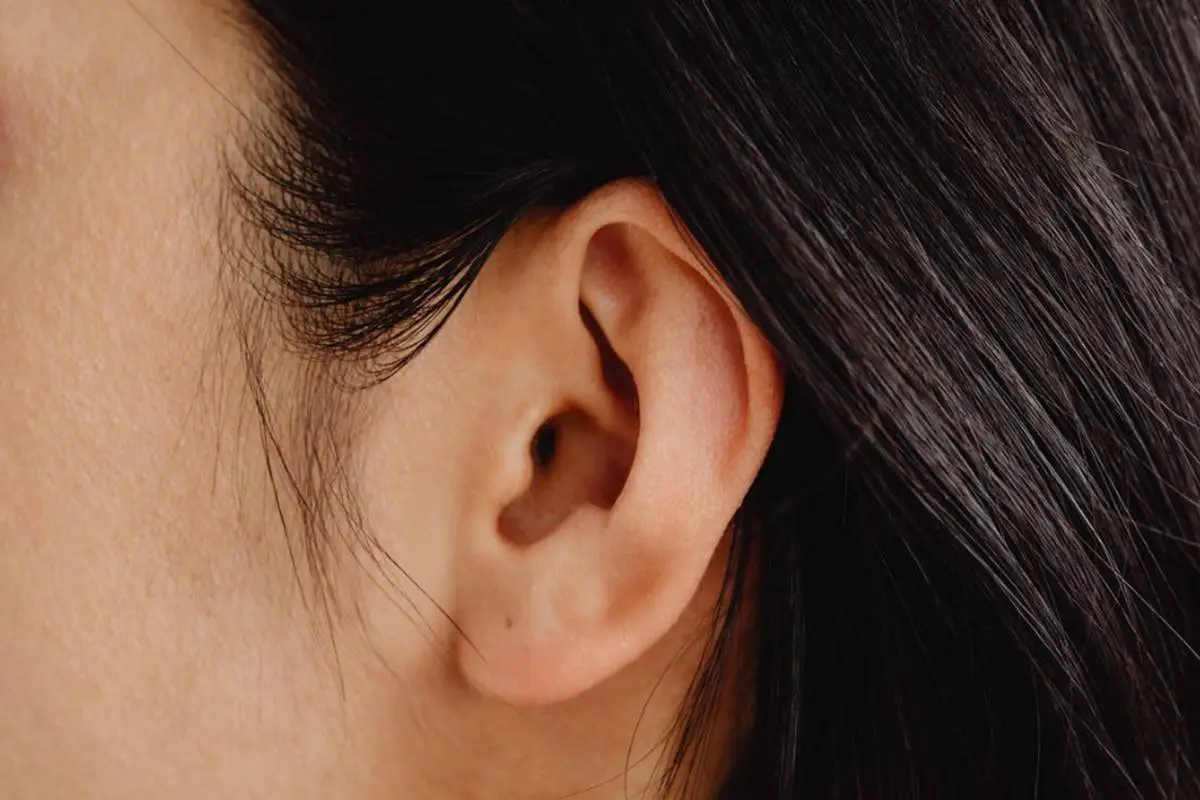Why are my ears ringing? What causes constant ringing in the ear or tinnitus? Are you one of the many million people who hear ringing, roaring, buzzing, hissing, or clicking sounds in one ear or both with no external source? We have answers to all these questions as today’s topic is all about ringing in the ear or tinnitus, its definition, causes, and cure. So, stay connected.
Tinnitus Definition
Tinnitus (pronounced ti-ni-tus) or ringing in the ear is a condition where you can hear a ringing, buzzing or other noise in one ear or both. These sounds are not generated by an external source and you are the only person who can hear them. Tinnitus is a common experience of many people.
Tinnitus affects about one-fifth of the total population and tends to be more common in seniors. It is an ear problem that affects more than 50 million adults in the United States of America.
About 1 in 10 adults have tinnitus lasting more than 3 months. It’s not a disease, it’s a symptom that something is wrong with your hearing or auditory system. The issue may reside in your ear, in the connecting nerve leading to the brain, or in the area of the brain that makes sense of sounds.
Many people find ringing in the ear to improve with treatment of the underlying cause, or with treatments that can help reduce its severity.
Ear ringing might be classified as objective or subjective tinnitus. Objective tinnitus is when sounds are experienced in both your ears, as well as the ears of other people near you. This is usually due to an abnormality with blood vessels near your neck or head.
Objective tinnitus is rare and most often experienced by older adults. Subjective tinnitus, on the other hand, is when only you can hear the roaring, buzzing, ringing, or other sounds.

Types of Tinnitus or Ringing in the Ear
There are two different types of tinnitus: pulsatile and non-pulsatile.
Pulsatile Ringing in the Ear
Pulsatile tinnitus is often caused by the sound you hear from muscle activity next to your ear, problems with the shape of your ear canal, or changes in blood flow to the face and neck. You may hear sounds like your heartbeat, breathing, or muscle contractions.
Non-Pulsatile Ringing in the Ear
Non-pulsatile tinnitus is a result of the nerves of the auditory system or hearing pathway. This type of ringing is sometimes felt more prominently in one or both ears, and the sound can also be heard inside the head.
What Causes Ringing in the Ears?
There are several potential health problems that can cause ringing in the ear, and in many cases, it is difficult to find out the exact cause of the tinnitus.
Your inner ear contains millions of tiny hair cells which move when sound waves come in. This movement triggers electrical impulses from your ear to your brain (the auditory nerve). Your brain interprets these cues, which is how you hear sound.
If you have age-related hearing loss and you’re regularly exposed to loud sounds, the hairs in your inner ear might leak random electrical impulses to your brain. This condition is called tinnitus, or ringing in the ears.
Every day, your ears may become blocked with debris or fluid (earwax) that can change the pressure in your ear, causing ringing or buzzing sounds. These symptoms are often due to an infection like otitis media or otitis externa.
Concussions and head/neck injuries can affect how well your ear and brain process sound. These injuries usually cause tinnitus in one ear, which is often temporary.
Sometimes medication can cause tinnitus and hearing damage, called ototoxicity. Following medications are often associated with ringing in the ear.
- long term use of high dose of aspirin
- antimalerial drugs (chloloquine)
- loop diuretic medicines (bumetanide)
- anti-cancer medication (vincristine)
- antibiotic (erythromycin, gentamicin)
Less Common Causes of Ringing in the Ear
There are other less common factors that might contribute to the development of tinnitus, such as acute conditions, chronic health conditions, injuries, or illnesses that affect the nerves in your ear or hearing center in your brain.
A common symptom of age-related hearing loss is tinnitus, ringing in the ears. It can be a constant or intermittent noise that can range from a low-pitched buzz to a high-pitched whine.
If you are experiencing a constant ringing in your ears, an early indicator may be Meniere’s disease. One of its effects is the feeling of pressure or fullness in your ears.
Eustachian tube dysfunction, another cause of ringing in the ear, is a condition where the eustachian tube in your ear, which connects your middle ear to your upper throat, remains slightly open all the time and causes you to have difficulty hearing or a full feeling in your ears.
In some cases, stiffening of the bones in your middle ear (otosclerosis) can cause hearing loss, tinnitus, and other symptoms. The disease tends to pass to the offspring.
If a muscle in your ear spasms for no explainable reason or if it has been caused by a neurologic disease like multiple sclerosis, tinnitus, or ringing in the ear may develop.
Acoustic neuroma is a noncancerous (benign) tumor that affects the nervous system in the ear. Tinnitus can also be caused by other types of tumors or injuries to your head, neck or brain.
Aging, hypertension, irregular blood vessels also can cause a temporary ringing in the ears.
The condition of tinnitus is associated with many different health conditions, including diabetes and thyroid problems. Other known health issues include rheumatoid arthritis and lupus.
Risk Factors of Tinnitus
Anyone can experience tinnitus, but it can sometimes be caused by external factors like noise or damage to middle ear bones. You may also be at greater risk if you have high blood pressure, diabetes, or a heart condition.
From loud noises, like chainsaws, gunshots, and heavy equipment, you can get damage to your ears if they’re nearby. This can cause ringing in the ears that makes it difficult to concentrate.
People who work in noisy environments – such as factory workers, construction employees, musicians, and soldiers – are particularly at risk for hearing loss, and tinnitus due to their noisy work environment.
As you age, the number of functioning nerve fibers in your ears declines. This can make it more difficult for you to understand what other people are saying. Tinnitus is another condition that can happen as a result of reduced auditory input
Men are also more likely than women to experience ringing in the ears, commonly known as tinnitus
Heavy smokers can be more likely to develop tinnitus. Drinking alcohol also increases the risk of developing it.
Persons in whom obesity, cardiovascular disease, high blood pressure, or a history of a head injury is present are more likely to complain about ringing in the ear.
Complications of Ringing in the Ear
For some people, tinnitus can radically change your life. You might not be able to hear or sleep well and you could feel very irritable. It might also affect your relationships and work, making it particularly difficult to do your job well.
If you have tinnitus, you may have difficulty concentrating and memory problems, fatigue, stress, sleep problems, depression, headache, and irritability. You may also experience trouble with work and family life.
Treatment of these conditions may not directly cure ringing in the ear, but it can help you feel better.
How is Ringing in the Ear or Tinnitus Diagnosed?
Your doctor reviews your medical history, conducts a hearing test, and listens to your symptoms. They will also do a physical examination of your ears. An audiologist transmits sounds through special headphones one at a time and you respond in some way as they go (raising your hand etc.).
Your doctor may be able to tell you why you’re experiencing tinnitus by matching your hearing levels to the average for people of your age and sex.
If you’re seeing your doctor, they may also use advanced imaging tests, like CT or MRI scans, to see any abnormalities in your ears. By viewing the structures inside your ears with these kinds of tests, you may be able to detect problems that standard plain film X-rays don’t always show.
Describe the different types of noises you hear and describe how long the sounds are. You may hear crackling, hissing, or buzzing sounds. The noise can provide clues about a possible underlying cause for your tinnitus.
A clicking sound suggests that the ringing in the ear is brought on by muscle contractions in and around your ear.
Pulsing, humming, or rushing sounds can happen when you have a medical condition such as high blood pressure. It may also happen to counteract the effects of lying down or standing up.
Low-pitched sounds may be caused by ear canal obstructions, Meniere’s disease, or stiff ossicles.
High-pitched ear ringing sounds are the most common types, and they may be caused by loud noise exposure, hearing loss, or medications. An acoustic neuroma is a small tumor on the nerve that connects the inner ear and brain and causes a continuous high-pitched ringing in one ear.
Preventive Measures of Ringing in the Ear
You should be aware that loud music or headsets can cause hearing loss, ringing in your ears, or tinnitus. Too much exposure to these sounds over long periods of time could affect your ear health.
Hearing damage is caused by loud sounds, so try to limit your exposure to them. If you cannot avoid loud noises, be sure to protect yourself with sound-proofing equipment so there’s no risk of permanent hearing loss or the problem of ringing in the ear.
If you work in any industry that requires loud machinery, use firearms, or operate a chain saw near your ears, always wear hearing protection.
The ringing in the ear caused by cardiovascular disorders such as obesity and blood vessels problems can be prevented by doing regular exercises and eating balanced diets.
Drinking too much alcohol and caffeine can lead to blood flow issues, especially when combined with nicotine. Limit these substances in order to prevent tinnitus symptoms.
Home Remedies of Tinnitus
Although tinnitus often won’t resolve itself, there are some things that people can do to lessen their symptoms. These strategies are quite helpful and work well for many people.
- If you feel like you’ve been drinking too much alcohol and/ or caffeine, cut back a little with what you’re already consuming, or stop altogether it depends on how severe your situation is.
- Quitting smoking and quitting use of smokeless tobacco products will help make your tinnitus more manageable.
- Try to limit your use of aspirin and non-steroidal anti-inflammatory drugs like ibuprofen and naproxen.
- Avoid extended periods of exercise, such as bicycle riding, that keep your neck in a hyperextended position.
- It’s hard to ignore the noises that is causing you significant problems. If it’s difficult for you to avoid certain sounds, wearing noise blockers like earplugs or earmuffs can help a lot.
- Try to ignore the noise by focusing on other things.
- Ringing in the ear or tinnitus seems to worsen with stress and fatigue, which can be cured through biofeedback relaxation techniques and meditation.
- Quiet rooms can cause tinnitus to seem more distracting. Furthermore, background noise may reduce the amount of noise you hear. This is why it’s important to try and stream audio during quiet activities as well as listen to music or white noise for relief from tinnitus.
- Consider using a fan, humidifier, or machine that emits soothing sounds such as waves on the ocean.
- Ginkgo biloba, acupuncture, melatonin and zinc supplement may provide some relief for ear ringing problem or tinnitus, but further research is recommended to determine the best dosage.
Tinnitus Cure or Treatment of Ear Ringings
If your tinnitus is caused by an underlying health condition, then your doctor may be able to reduce the symptoms of your condition by treating the cause.
Removing earwax is an effective remedy for treating tinnitus and can decrease the severity of symptoms.
Exercising on a regular basis can help keep blood vessels healthy and reduce the risk of associated ringing in the ear problem. Treating a blood vessel condition can be done through medication, surgery, or regular exercise routines.
Unacceptable levels of noise can cause hearing problems. Hearing aids can help improve symptoms of tinnitus or age-related hearing loss.
If you’re finding that a medication is causing your tinnitus symptoms, talk to your doctor about stopping or reducing the medicine, or switching to a different option.
Your doctor may recommend using white noise machines and masking devices as a way to reduce the level of noise in your life.
Behavioral therapies like tinnitus retraining therapy (TRT) and cognitive behavioral therapy (CNT) aim to help you live with your tinnitus by helping change how you think and feel about it. Over time, your tinnitus may start bothering you less.
Many cases of tinnitus have no known cure, but some types of drugs and therapies may help relieve your symptoms. If a doctor decides to prescribe you medication or provide treatment for an underlying condition, they may do so to help reduce the severity and complications of ringing in the ear.
Sources
- https://www.ncbi.nlm.nih.gov/pmc/articles/PMC5812683/
- https://www.ncbi.nlm.nih.gov/pmc/articles/PMC3645155/
- https://www.ncbi.nlm.nih.gov/pmc/articles/PMC6691100/
YOU MAY ALSO LIKE
Left & Right Ear Ringing Meaning: Spiritual Omen, Superstition
Eye Itching in the Corner (Inner & Outer): Causes, Treatment & Remedies
Hole in the Ear Spiritual Meaning, Myths: Preauricular Sinus in the Bible
Left & Right Ear Itching Meaning, Superstition, Biblical, & Spiritual Omen















